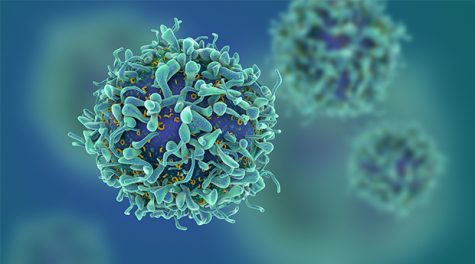The scientific facts about cannabis and weight loss
In studies, CBD has been shown to increase “brown fat” in the body

Using cannabis for weight loss might seem like a crazy idea to many, considering the fact that this plant is renowned for causing its consumers to get the “munchies”. In fact, many states that have legalized recreational cannabis sales reported a surge in sales of junk food and fast food post-legalization. Nonetheless, scientists have reason to believe that cannabis could actually play a role in preventing obesity.
Two large-scale national surveys – published in the National Epidemiologic Survey on Alcohol and Related Conditions (NESARC 2001-2002) and the National Comorbidity Survey-Replication (NCS-R, 2001-2003) – discovered that cannabis consumers were less likely to be obese than non-users. Although these surveys date back almost two decades, the scientific aspect cannot be ignored.
Previous studies have suggested that the endocannabinoid system (ECS) – a biological system made up of cannabinoids and cannabinoid receptor proteins – is closely linked to weight gain/loss. Since the ECS is known to influence regulatory control of calorie storage and metabolism, scientists say that “it represents a potential pharmacotherapeutic target for obesity, diabetes and eating disorders.”
Moreover, a study published in the journal Psychosomatic Medicine revealed that frequent cannabis use is associated with a lower Body Mass Index (BMI).
Cannabis and weight: THC and THCV’s effect on body fat
Inside the ECS is an intricate network of cellular receptors that help maintain balance within the body; something known as ‘homeostasis’. The cannabinoid responsible for making consumers feel “high”, “stoned” or “baked” is THC (tetrahydrocannabinol). THC is also believed to be the culprit that prompts consumers to raid the fridge with a serious case of the munchies, which is probably the reason why cannabis has been associated with weight gain for so long.
CB1 receptors scattered around the ECS become activated when they bind with THC; whether the person consuming THC ingests it in the form of an edible, inhales it in the form of a THC-rich vapor or uses it sublingually in the form of a tincture or oil-based spray. Scientists have explored the role that CB1 receptors play when they are affected by THC, with studies demonstrating how they may regulate energy storage, uptake and conservation.
Ingesting or inhaling THC intensifies senses like taste and smell, which essentially prompts the brain to believe it is hungry. For this reason, many cancer patients who endure appetite loss from chemotherapy can greatly benefit from using THC-rich medical cannabis. In spite of this, THC could also suppress a person’s appetite and bolster calorie-burning ability. How, you ask? People who consume diets that are rich in omega-6-fatty-acids and low in omega-3-fatty-acids may have overactive CB1 receptors; Western diets generally have an omega-6 to omega-3 ratio of 20:1, whereas the recommended ratio is 3:1. Too much of these fatty acids may cause the ECS to become disrupted and unbalanced.
When CB1 receptors are stimulated in greater amounts than is desired, the likelihood of becoming obese skyrockets. Furthermore, the risk of cardiovascular disease, inflammation, insulin resistance and destructive lipid profiles also increases. Interestingly, if CB1 receptors are activated frequently with regular THC consumption, overactive receptors could be down-regulated. Cannabis consumers may also benefit from consuming THCV (tetrahydrocannabivarin) — a homologue of THC with very different effects. If consumed with THC, scientists believe that THCV could hold the key for suppressing appetite.
Cannabis and weight: Understanding the connection between CBD and “brown fat”
Cannabidiol, abbreviated as ‘CBD’, may also be responsible for aiding weight loss. This non-psychoactive cannabinoid has been widely mentioned in the news as of late and, as a result of the 2018 Farm Bill’s recent passing, hemp-derived CBD containing less than 0.3 percent THC is now legal in the United States.
In studies, CBD has been shown to increase “brown fat” inside the body. Also known as “brown adipose tissue”, this type of fat is present in humans and mammals. Its primary purpose is to transform food into heat; which explains why mammals that hibernate tend to have high levels of brown fat.
Since CBD increases brown fat, consumers can benefit from extra fuel for gym workouts and intense exercise sessions. Consequently, this can lead to increased calorie-burning ability. Additionally, when the body produces more brown fat, the metabolic rate of fat cells improve, thus making CBD a potentially promising cannabinoid for preventing obesity.
These findings are exciting; especially since the cannabis plant produces more than 250 different chemical compounds. Scientists have just begun exploring the effects of each and so, there’s a good chance that we will learn more about the benefits of using cannabis for weight loss in the future.












